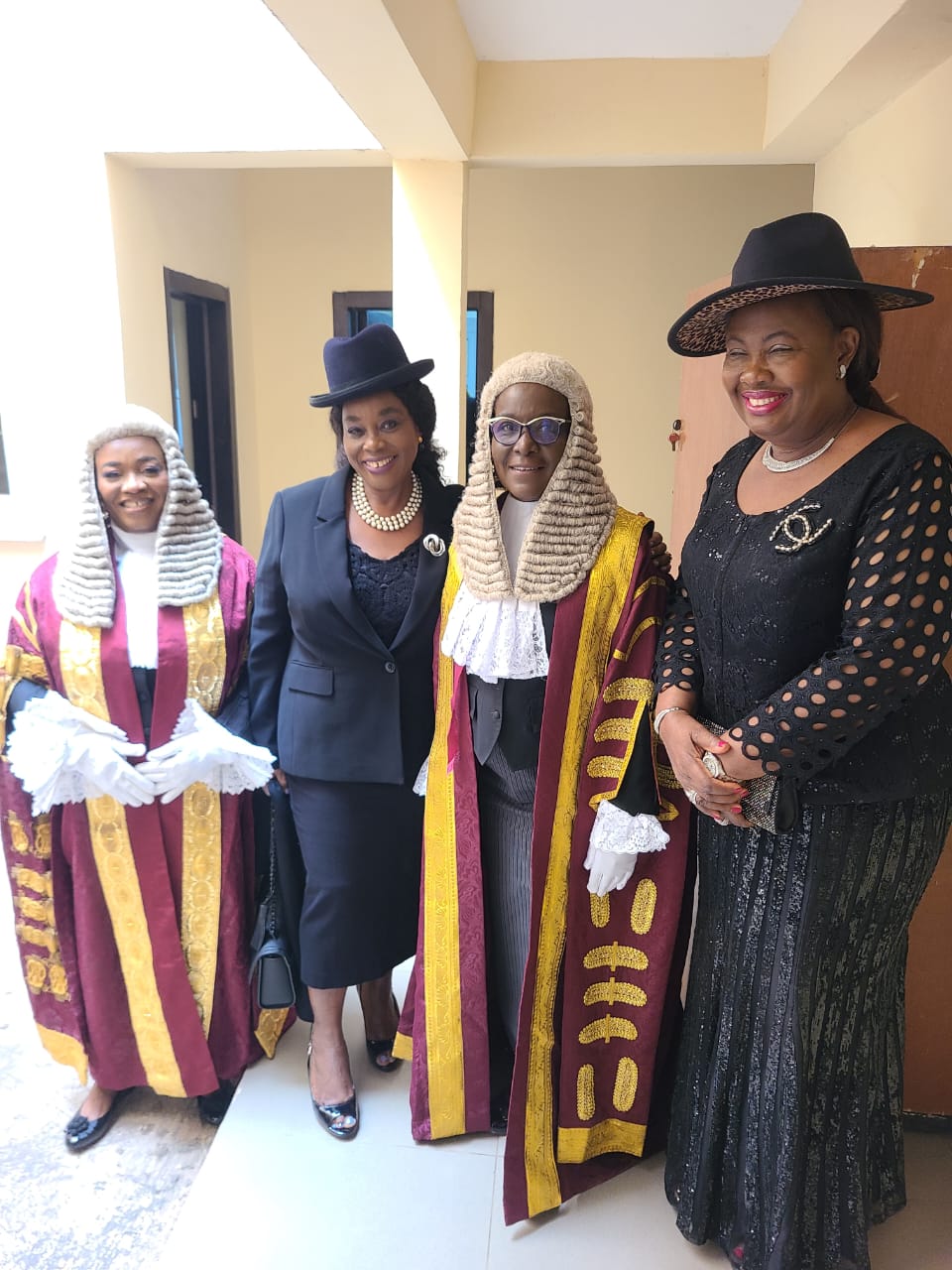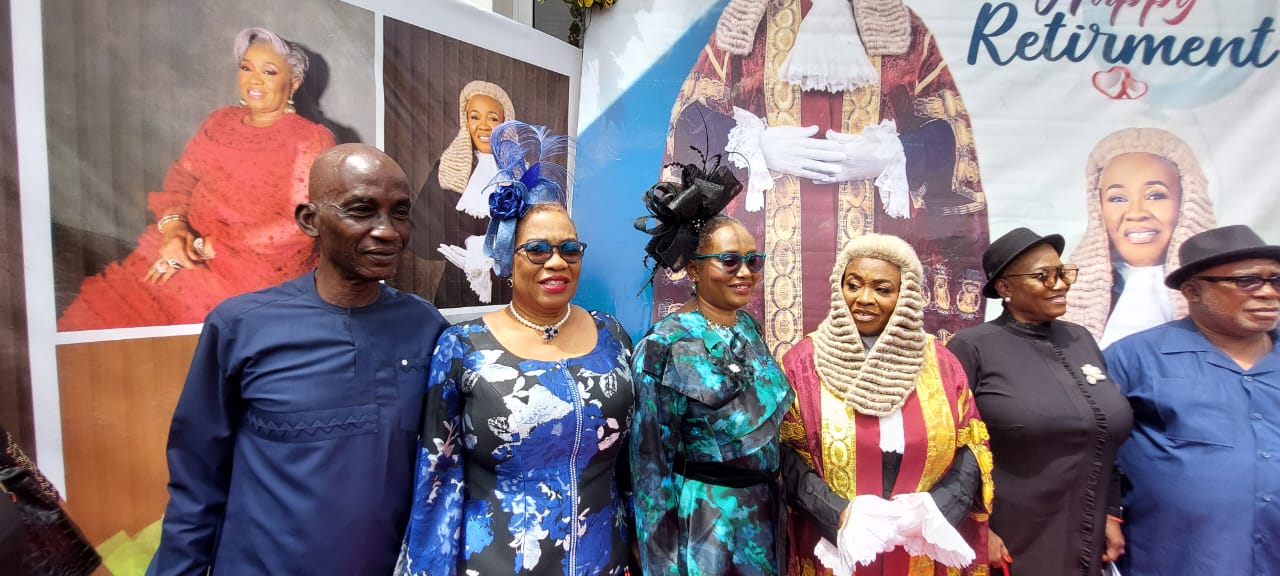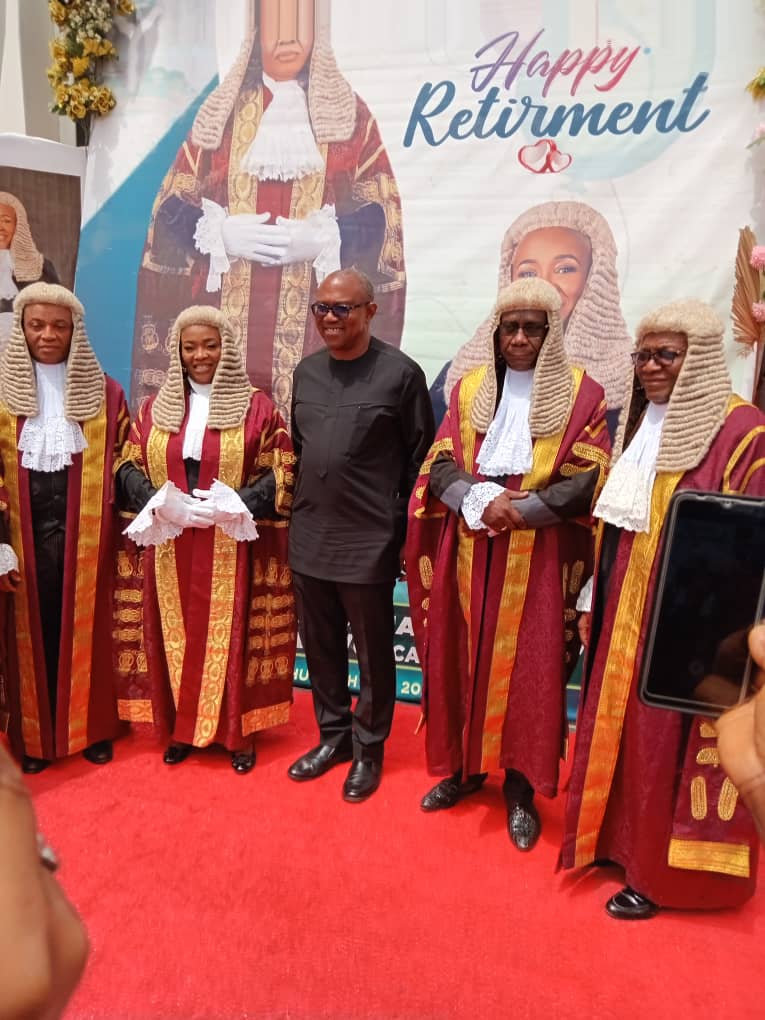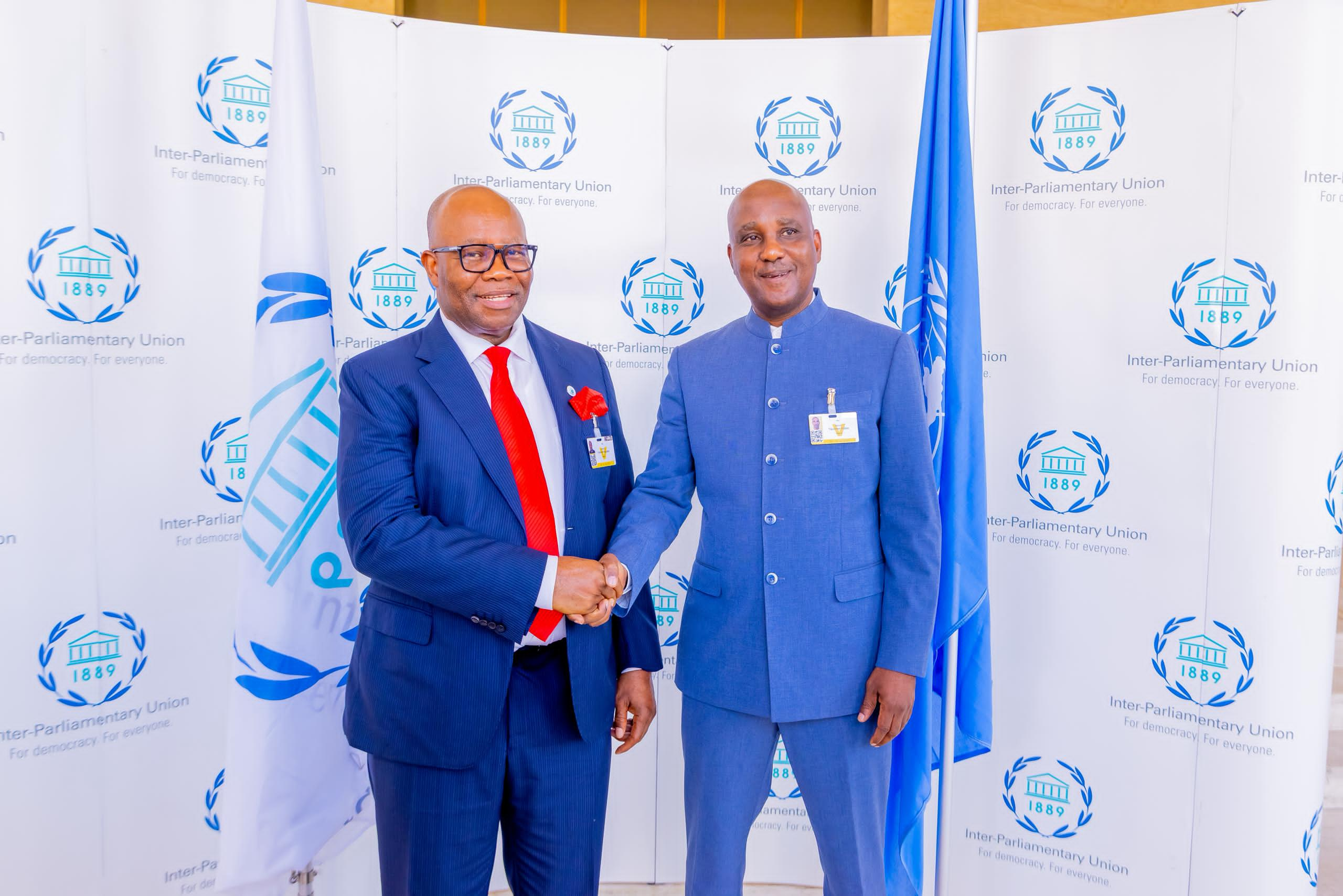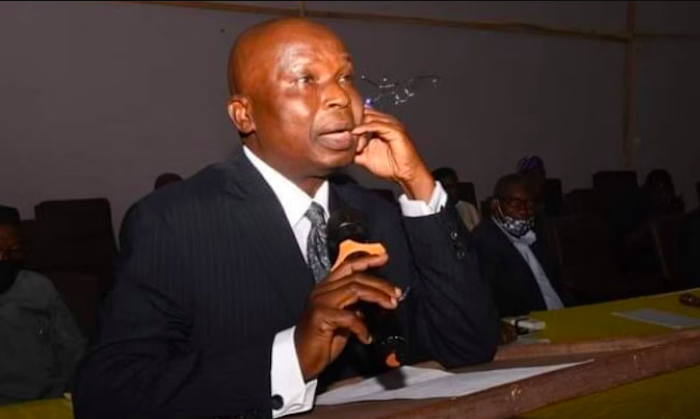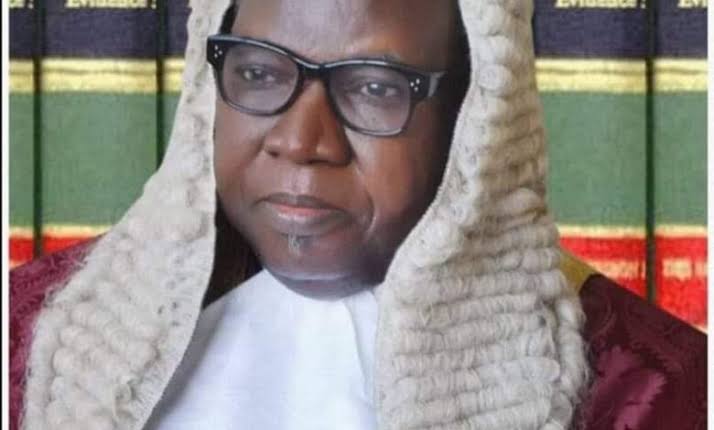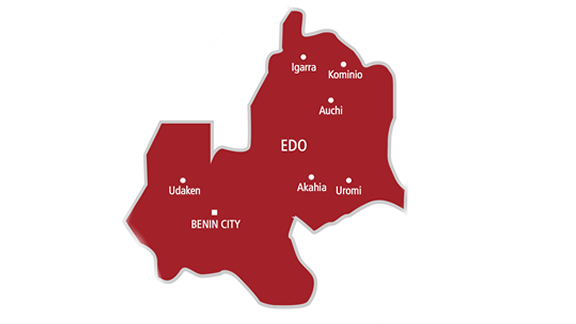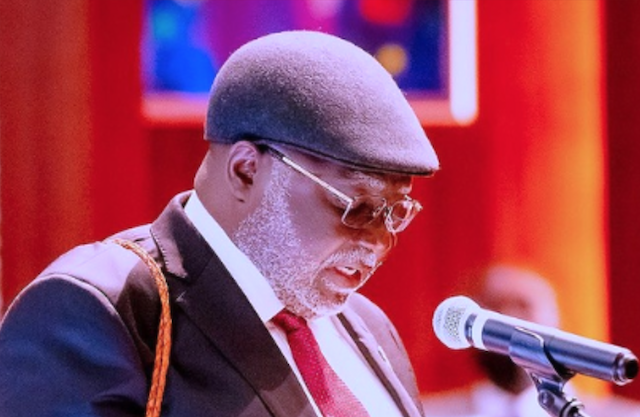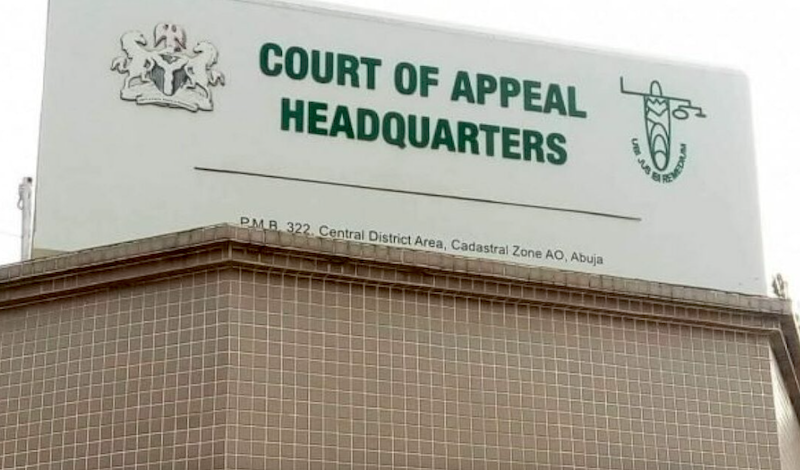…says those of us in Queens sch will remain ever grateful to Chief EK Clark who gave us chairs and desks
… before the furniture came we were sitting on cement blocks
Justice Uzo Ndukwe-Anyanwu of the Appeal Court who last week formally retired from service has narrated how the civil war of 1967 denied students in the South Eastern part of Nigeria sacrificed three academic sessions to the war.
Justice Ndukwe-Anyanwu, JCA, made this revelation in her valedictory session in Enugu last Thursday where she started her career as a Legal Officer.
The Valedictory session was attended by Who is who in Nigeria, including the Presidential candidate of the Labour Party, LP, Peter Obi, in this her abridged speech bared it all as she recalls the ordeal those in the South East went through in those horrifying three years the war lasted.
Hear her:
“The journey to this day started 70 years ago in Bida in today’s Niger State. I was born into the illustrious Ndukwe family of Oraifite in Ekwusigo Local Government Area to Ellis Amobi Ndukwe and my mother Janet Uchenna Uzoukwu-Ndukwe on the 28th day of December, 1953.
“My father a young pharmacist was posted to Bida to serve out his bond as a Federal Government Scholar trained in the Pharmacy School Yaba Lagos.
“My mother a trained teacher of Women Training College Umuahia in today’s Abia State. They got married in Bida and started their life together. My father served out his bond in 1955 and they both relocated to Enugu where my other five siblings were born. I started my elementary school in Women Training College Practising School Enugu in 1959.
” I spent six years and obtained my First School Leaving Certificate (FSLC). I proceeded to Queen’s School Enugu in 1966 to start my Secondary School education. I was in class two in 1967 when the civil war broke out.
” All schools in the then South East or better known as East Central State were shut down. Students were sent home. I was at home for most of the year in 1967 in Enugu until it fell. My family thereafter, relocated to our village Oraifite in Ekwusigo Local Government Area of Anambra State.
” The hostilities continued for us in our new location. Myself and my sister Uche continued with our education in Anglican Girls’ Secondary School Nnewi, a few miles from home.
” My parents hired a room for us close to the school. My father used to drop us off on Sundays on his way back to work in Amaigbo where the Nigerian Railway Corporation Hospital was stationed.
“Myself and my sister would thereafter, take the long walk back home to Oraifite on Fridays. The hostilities continued with a lot of intensity. Oraifite was so close to Onitsha which was a very dangerous front.
“After sometime, it became clear that the war front was moving past Onitsha inching into the neighbouring towns and villages. Oraifite did not fall due to the hostilities but my parents moved most of us again to Owerri further into the hinterlands. Somehow, the hostilities never got to Oraifite.
” Luckily the hostilities ended in January, 1970. Everyone tried to go back to their former places of abode as much as possible though very sceptical. My own family went back to Enugu. Luckily our own home was still standing bereft of any piece of furniture except an oak dining table which was assembled in the room. That is that for the years 1967 – Jan. 1970.
“The process of rehabilitation was tedious. No money, nothing. It was B. A. begin again. I went back to Queen’s School Enugu. It has also suffered devastation like everything in the South East.
“The three Rs promised by the Federal Government was a far cry in materialising. In Queen’s School we started with sitting on cement blocks and anything available in sight. It didn’t take too long before our situation got the attention of the Midwest Government of Samuel Ogbemudia spearheaded by Chief E.K. Clark who I believe was then his Commissioner of Education.
” Lorry loads of desks, chairs and wood to build more furniture were delivered to our school. Chief E. P. Clark personally came to our school. We saw him as a Messiah coming to the rescue. Up till this moment, Queen’s School Old Girls still revere him.
” A house was named after him in recognition of his good deeds. God bless him abundantly. We struggled on, as most of our expatriate teachers did not come back. Some of the Nigerian teachers returned with an infiltration of new ones.
” The core values of the School were lost never to be regained. We struggled along with our studies as much as we could. The east then had two sets of class 5. Those who were in class 5 before the war were designated Class 5 (Special) and those who were promoted to Class 5 after the war were called Class 5 (Ordinary). Both sets took their School Certificate together and there was recorded a lot of exam malpractice. They retook the exams and were notoriously labelled Expo Set.
” I eventually took my School Certificate in 1972 and came out with a Grade 1 with 3 distinctions. I then proceeded to Queens’ College Lagos for my ‘A’ Levels. It was a different ball game. I came with a mind-set that discipline would be the watchword. I was very disappointed.
” I expected more from them since they were shielded from the war. I quickly adapted to the new normal of discipline I met. We were only three from Queens’ School Enugu. The girls we met who were our classmates were at least 3 years younger.
“My original classmates left just before we came in 1973. We were supposed to do ‘A’ Levels for two Sessions but as the Federal Government was changing the School Calendar to conform, with the world, we ended ours in June 1974 instead of December 1974.
“We therefore, became, the first June set to be able to proceed to the Universities in September of the same year. Unlike before, after ‘A’ levels in December you had to proceed to University in September of the next year losing almost a year at home.
” It became obvious to us that we had to compress the curriculum to one and half years which made it very hectic and onerous. Universities then had their own entrance exams.
” I only opted to take the entrance exam for U. N. N. which I passed. At the end of the ‘A’, Levels, I proceeded to U. N. N. Enugu Campus before the ‘A’ Levels Results came out. I passed my ‘A’ levels.
” I was then offered admission to UNILAG to study Law, University of Ibadan to study BA Classics as they had no Law Faculty. I also was offered admission to ABU Zaria. Since I had already started a 4-year programme, Prof C. O. Okonkwo our family friend and my course adviser convinced my parents I should continue in U. N. N.
” I didn’t see any need to go against their wishes and I continued in U.N.E.C. I enjoyed my 4 years in the university participating in the Students Union Council. It was 4 years of fun and growing up. The academic sides of my sojourn in the university was brilliant and interesting.
” I did not lag behind on the social aspect of university life. Driving in the university was a sina qua non. One was careful not to be bitten by the almighty BEE, a UNEC soft sell magazine that watched all the clandestine moves of students. I got lucky not to be bitten by the BEE. But it was all fun when you were not the victim of its sting. We participated in the Annual Rag Day. This used to be very interesting.
” It was the only day the members of the Pirate Confraternity unmasked themselves. They acted as the ombudsman. They came to the various hostels especially the female hostels to ensure compliance.
” Undergraduates dressed themselves in rags. There was a competition to know who adorned themselves in what is seen as rags. A Rag Queen and Rag King were crowned to end the day. It was all fun whilst collecting donations for charities from the public. In my 4th and final year, there was the almighty strike that had bedevilled Nigerian Educational System.
” In the years in the University our elders cautioned us on joining the National Strikes of NANS. The reason being that each of us had lost not less than 3 years in the war.
” The universities in the East tried to shield themselves from National Strike actions. However, this one was the master of all strikes. The ALI MUST GO Strike.
” Universities nationwide were shut down for weeks. We stayed at home for weeks. Universities were opened early June. Universities had only about two weeks, to finish their syllabus, do revision and then exams.
” It was tough but, school calendar was school calendar. Exams cannot be shifted. ALI was the then Minister of Education. No one knew who he was. Decades later, this man came to my Chambers to take his oath for his Code of Conduct Form.
” I administered the oath and we got talking. He confessed that he was that ALI the Minister under whom we went on strike. He narrated how the road in Surulere was blocked when he was going home.
“He was forced to come down and he immediately fizzled into the crowd shouting ALI MUST GO like everyone on the street. He was an ordinary man.
” He was not physically endowed in terms of height, so no one recognised him. He became one of the protesters on the street waving leaves. He was a very funny man. I told him in no uncertain terms what he caused me as an individual.
“Up till today I can’t place my hand on the issues we went on strike for. However, ALI was the face of government that kept us at home. We sat for our exams amidst the paucity of time. It was tough to say the least. I made it but there were a lot of casualties littered all over.
